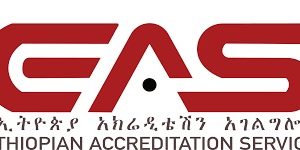
Ethiopia’s Small and Medium Enterprises (SMEs) are crucial for driving economic growth, innovation, and employment, but they face significant obstacles, particularly in accessing finance, skills, and suitable workspaces. Economists and officials agree that overcoming these challenges is essential for sustainable economic growth.
A 2024 report by First Consult, an economic development consulting firm, highlights the persistent difficulties faced by Ethiopian SMEs, primarily concerning finance, working premises, and market linkages. The report, based on research and analysis, notes that while Ethiopia’s economy is undergoing significant changes, its fundamental structure remains largely unchanged. Despite these systemic challenges, enterprises remain vital economic actors, especially in job creation and providing livelihoods. However, enterprise penetration and entrepreneurship formation lag behind comparable nations.
First Consult’s Access to Finance Lead and EconomistGetachewMekonnen, identified access to finance, skills shortages, limited market linkages, and lack of working premises as key challenges for new businesses. He pointed out the pressure of 2-3 million new entrants into the Ethiopian labor force annually, with a 19% national unemployment rate in 2023. He also cited the need for approximately 14 million jobs between 2020 and 2025 to absorb new labor market entrants.
Despite these challenges, Getachew expressed optimism about recent legal and operational reforms and the role of financial institutions like Awash Bank in supporting entrepreneurship and SMEs as critical drivers of national growth.
Awash Bank’s CEO, TsehayShiferaw, emphasized the bank’s commitment to fostering entrepreneurship and economic growth through initiatives like the Tatariwochu/Qaxaleewwan entrepreneurship competition. This competition, launched in 2022, provides training, business development support, and access to finance for SMEs.
Tsehay stated the bank’s dedication to providing sustainable support to entrepreneurs, addressing challenges related to initial and working capital and skill development. In the second round of the competition, Awash Bank awarded prizes ranging from 80,000 to 1 million Birr to the top eight competitors. The winner, Abraham Eshetu of Selale Car Company, received 1 million Birr and access to a collateral-free loan of up to 5 million Birr to expand his electric car business.
Abraham envisions creating around 150 jobs as he expands his company from Fiche Selale to Addis Ababa. His company has already produced five electric vehicles, including a Lamborghini replica and minibus taxis, each capable of traveling over 1,200 km on a single charge. Abraham plans to use the award and loan to increase production of his electric vehicles, designed for transportation, goods delivery, and rural farming, offering sustainable solutions to social challenges and promoting a cleaner environment at reasonable prices.
Labor and Skills, State Minister, Daniel Teresa, highlighted the importance of financing entrepreneurs for job creation, improved livelihoods, innovation, and knowledge and technology transfer. He affirmed the government’s prioritization of skill development to support startups and ensure their success, emphasizing the need for finance, training, and workspaces.
Daniel acknowledged the government’s efforts to create more jobs. He also mentioned limitations and encouraged active private sector engagement. He noted the government’s support for the private sector through legal frameworks and incentives, highlighting the importance of recent macroeconomic reforms in enabling private sector participation in national development through business support.
He also recognized the historical challenges faced by SMEs and entrepreneurs regarding finance and workspaces, but stated the government is actively addressing these issues through legal and procedural reforms to improve the ease of doing business, with the involvement of both local and foreign companies. He emphasized the crucial role of financial institutions like Awash Bank in promoting innovation and job creation, empowering entrepreneurs, and improving lives across Ethiopia.
While access to finance remains a significant hurdle for Ethiopian SMEs, it is not insurmountable. Collaborative efforts and innovative solutions are key to creating an enabling environment for SME growth. Improved access to finance will not only benefit individual businesses but also stimulate broader economic growth and development in Ethiopia.
BY YOHANES JEMANEH
THE ETHIOPIAN HERALD THURSDAY 6 FEBRUARY 2025





